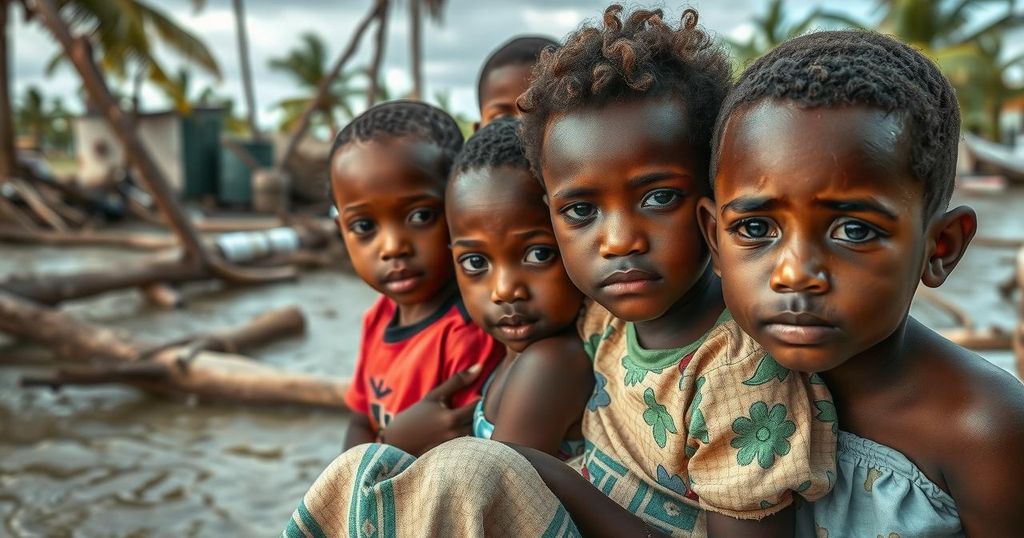Devastation in Mozambique: Cyclone Chido Impacts 90,000 Children and Communities
Cyclone Chido struck Northern Mozambique, devastating Cabo Delgado province and impacting over 90,000 children. The cyclone destroyed thousands of homes and classrooms, heightening the urgent need for humanitarian assistance in a region already battling conflict and disease outbreaks. UN agencies are responding to the crisis, although resources are limited.
Tropical Cyclone Chido recently impacted northern Mozambique, specifically the Cabo Delgado province, resulting in widespread destruction. The storm caused devastation by destroying or damaging over 35,000 homes, displacing numerous families, and affecting approximately 90,000 children, as reported by UNICEF. The ensuing damage extended to at least 186,000 destroyed classrooms and 20 health facilities, prompting urgent calls for humanitarian assistance. This disaster adds to the existing challenges faced by the region.
Cabo Delgado has been afflicted by prolonged conflict for seven years, leading to more than 1.3 million internally displaced individuals, predominantly women and children. The cyclone exacerbates their struggles by erasing any progress they had made in rebuilding their lives. Furthermore, the disaster unfolded amidst ongoing cholera outbreaks, heightening health risks in the already vulnerable population. UNICEF and other organizations are mobilizing to assist despite substantial logistical hurdles.
In addition, Cyclone Chido extended its reach into Nampula and Niassa provinces, leaving countless families without electricity and damaging vital water infrastructure. Within 48 hours of the cyclone’s landfall, the UN refugee agency, UNHCR, facilitated emergency relief for over 2,600 displaced persons in Pemba, distributing essential supplies like blankets and mosquito nets. Preliminary assessments indicate that approximately 190,000 individuals are in urgent need of humanitarian assistance in the region.
Cyclone Chido hits Mozambique during a critical juncture, compounding preexisting humanitarian crises including conflict, economic instability, and disease outbreaks. The United Nations has emphasized the vulnerability of Mozambique to climate-related disasters, particularly in Cabo Delgado, a region already fraught with turmoil due to ongoing conflict. Thus, the cyclone intensifies the region’s extensive humanitarian needs, with children suffering disproportionately from both the immediate fallout of the storm and the broader context of instability.
In summary, Tropical Cyclone Chido has inflicted significant damage in northern Mozambique, particularly in Cabo Delgado province, adversely affecting thousands of homes and educational facilities. UNICEF reports that approximately 90,000 children have been impacted. As the humanitarian crisis unfolds, the international community’s response becomes critical in addressing the urgent needs of the affected populations. Collaborative efforts aimed at rebuilding and providing vital services will be essential to mitigate the crisis’s long-term effects.
Original Source: news.un.org




Post Comment